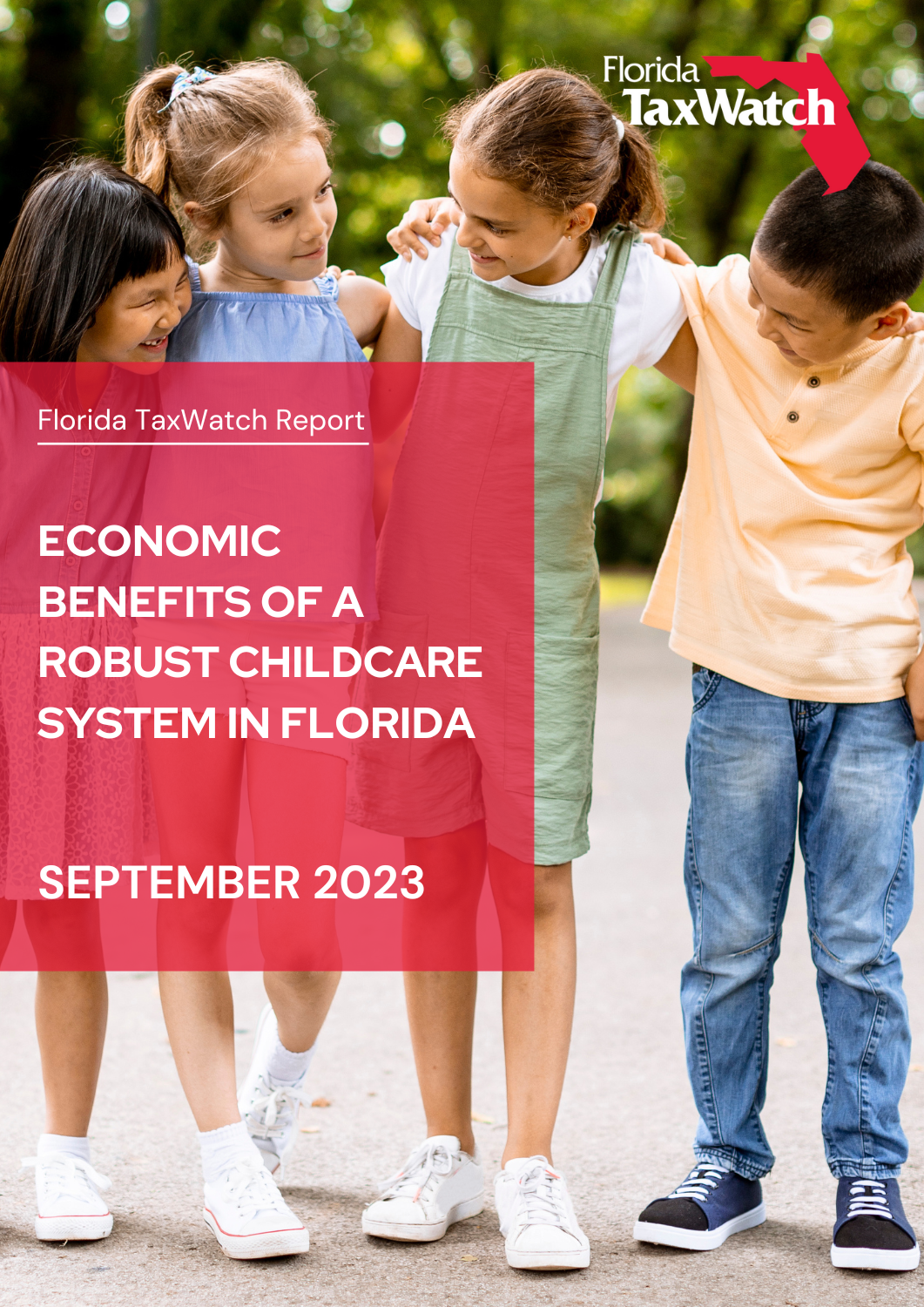Economic Benefits of a Robust Childcare System in Florida
 Access to affordable, quality child care and early learning programs is essential for keeping parents in the workforce. In July 2022, Florida TaxWatch released “How Childcare Impacts the State’s Economy and Shapes Florida’s Workforce” to examine the risk unstable childcare options pose to the state’s economy. The briefing found that childcare-related turnover can cost $5.7 billion in lost earnings for families, $1.2 billion in turnover expenses for businesses, and $518.3 million in tax revenues, annually. Yet, the availability and capacity of high-quality child care and early learning programs remain limited, and often unaffordable, for many Florida families.
Access to affordable, quality child care and early learning programs is essential for keeping parents in the workforce. In July 2022, Florida TaxWatch released “How Childcare Impacts the State’s Economy and Shapes Florida’s Workforce” to examine the risk unstable childcare options pose to the state’s economy. The briefing found that childcare-related turnover can cost $5.7 billion in lost earnings for families, $1.2 billion in turnover expenses for businesses, and $518.3 million in tax revenues, annually. Yet, the availability and capacity of high-quality child care and early learning programs remain limited, and often unaffordable, for many Florida families.
In response to the COVID-19 pandemic, Florida received more than $3 billion in federal emergency relief funding to stabilize and support the state’s childcare industry so parents could continue to work, businesses could remain open, and the economy could continue to function. While this funding was absolutely critical, it will be gone by September 2024—with most of the funds set to expire September 30th of this year—leaving Florida staring down the edge of a $3.18 billion fiscal cliff in the absence of additional funding. Florida’s legislature must take action to prevent the devastating effects of this fiscal cliff from becoming reality and to improve the affordability and availability of child care and early learning in the state.
Florida TaxWatch is pleased to present this report and its findings and looks forward to engaging policymakers in the 2024 legislative session and beyond. To read the latest report, visit: Economic Benefits of a Robust Childcare System in Florida.